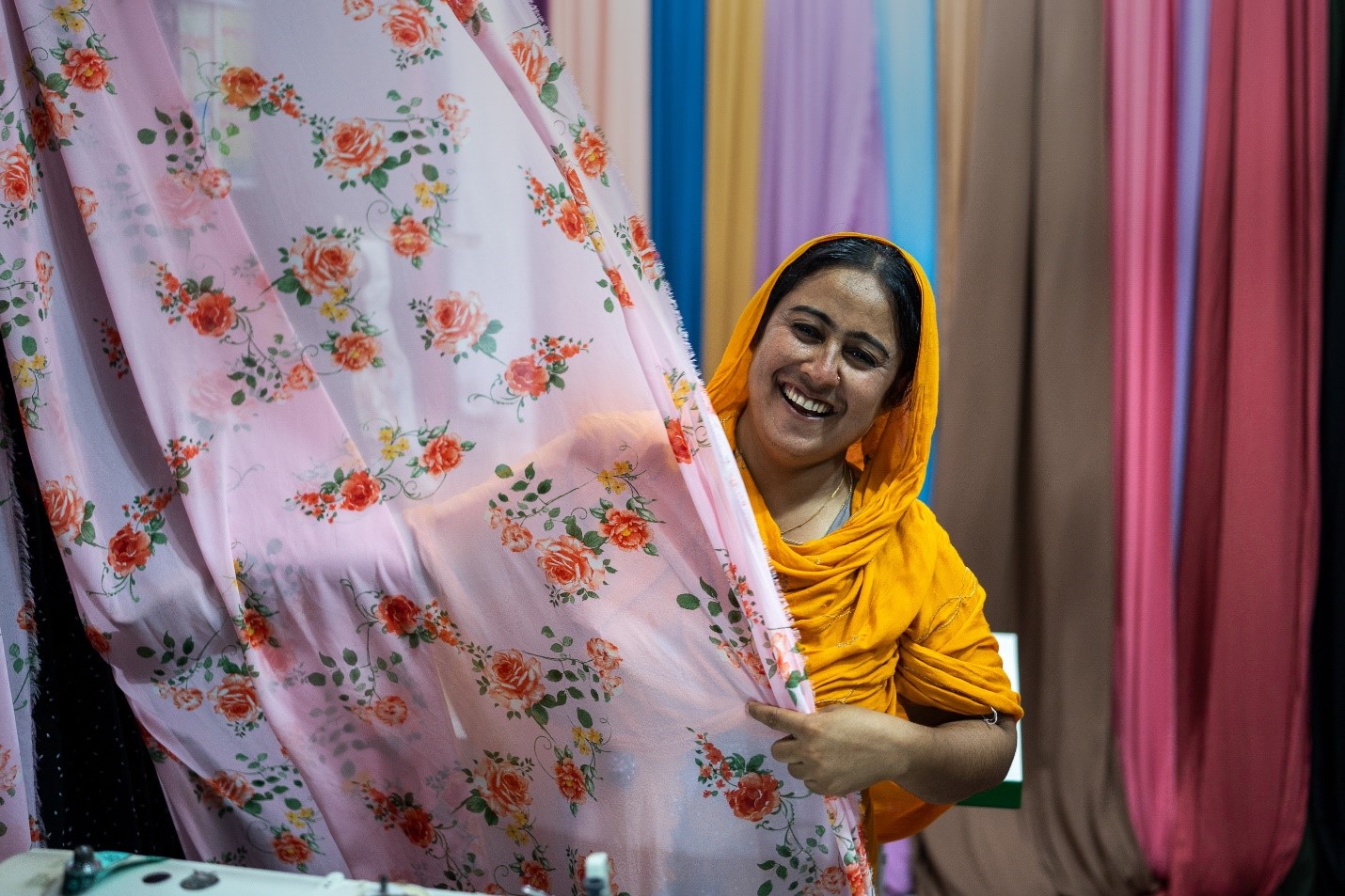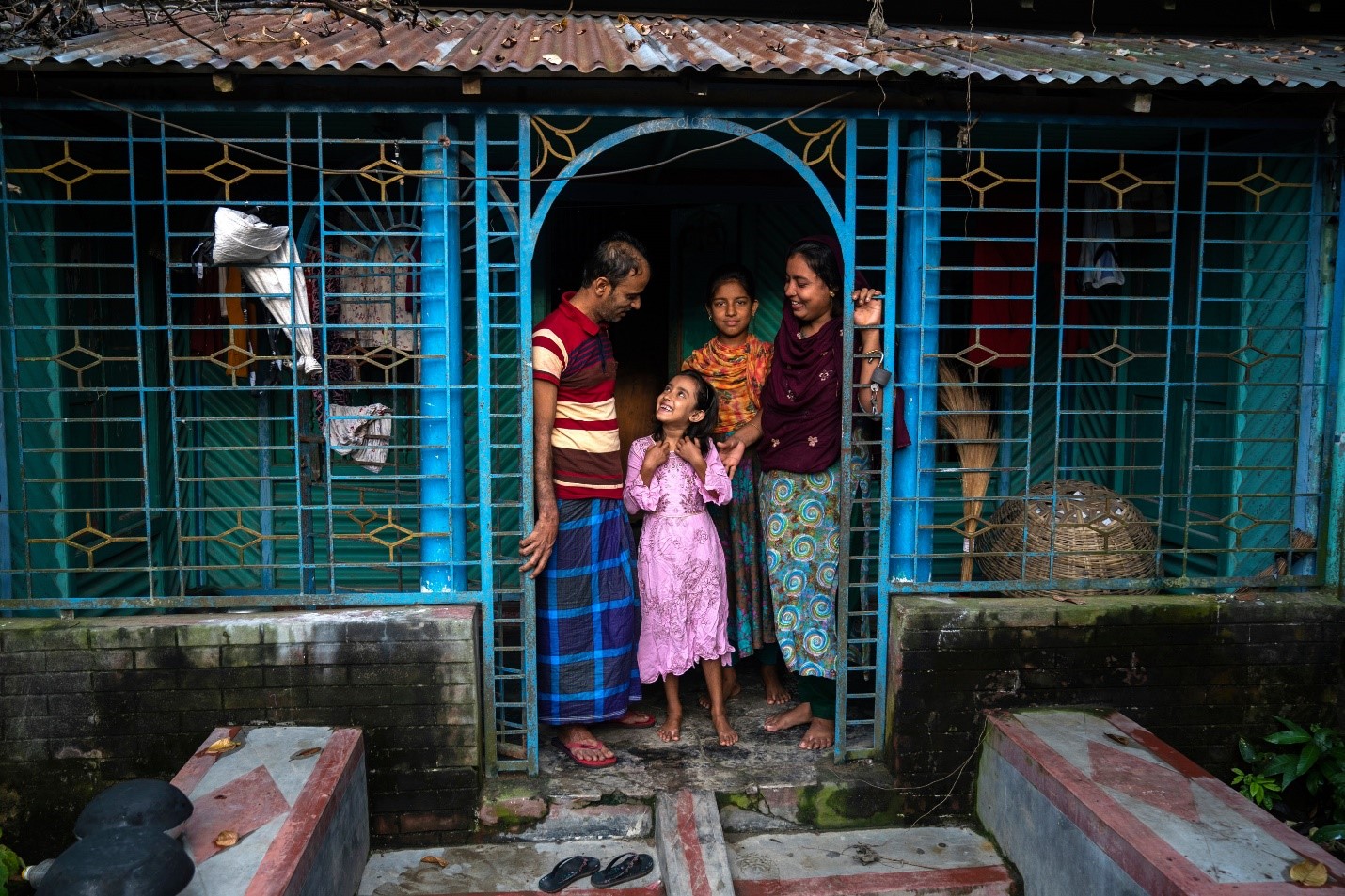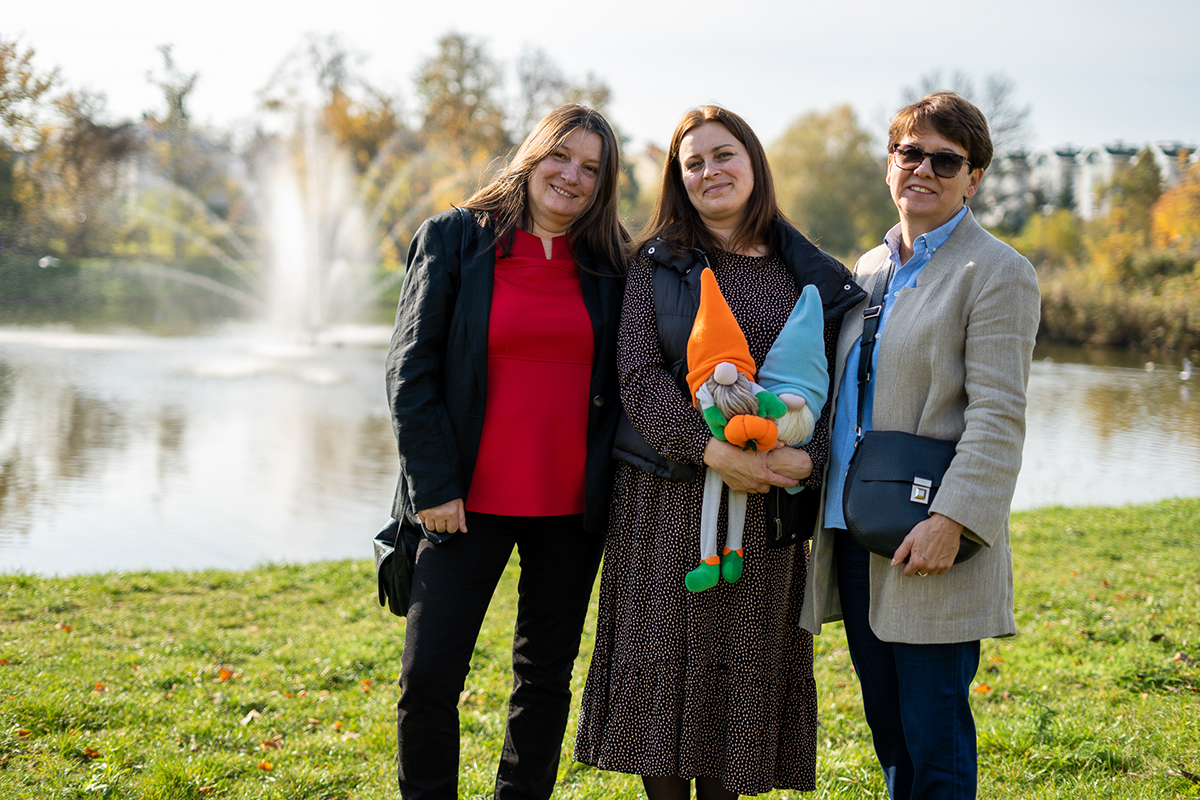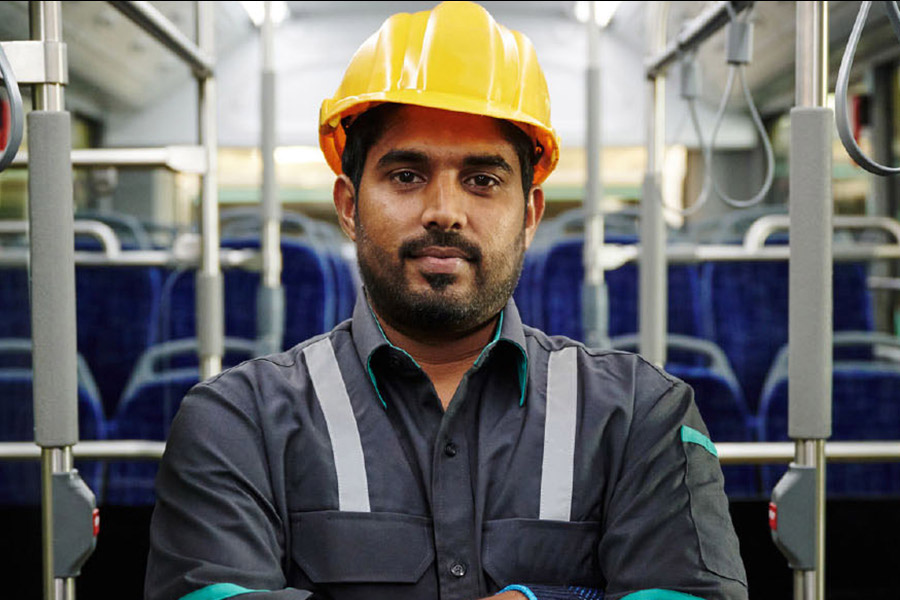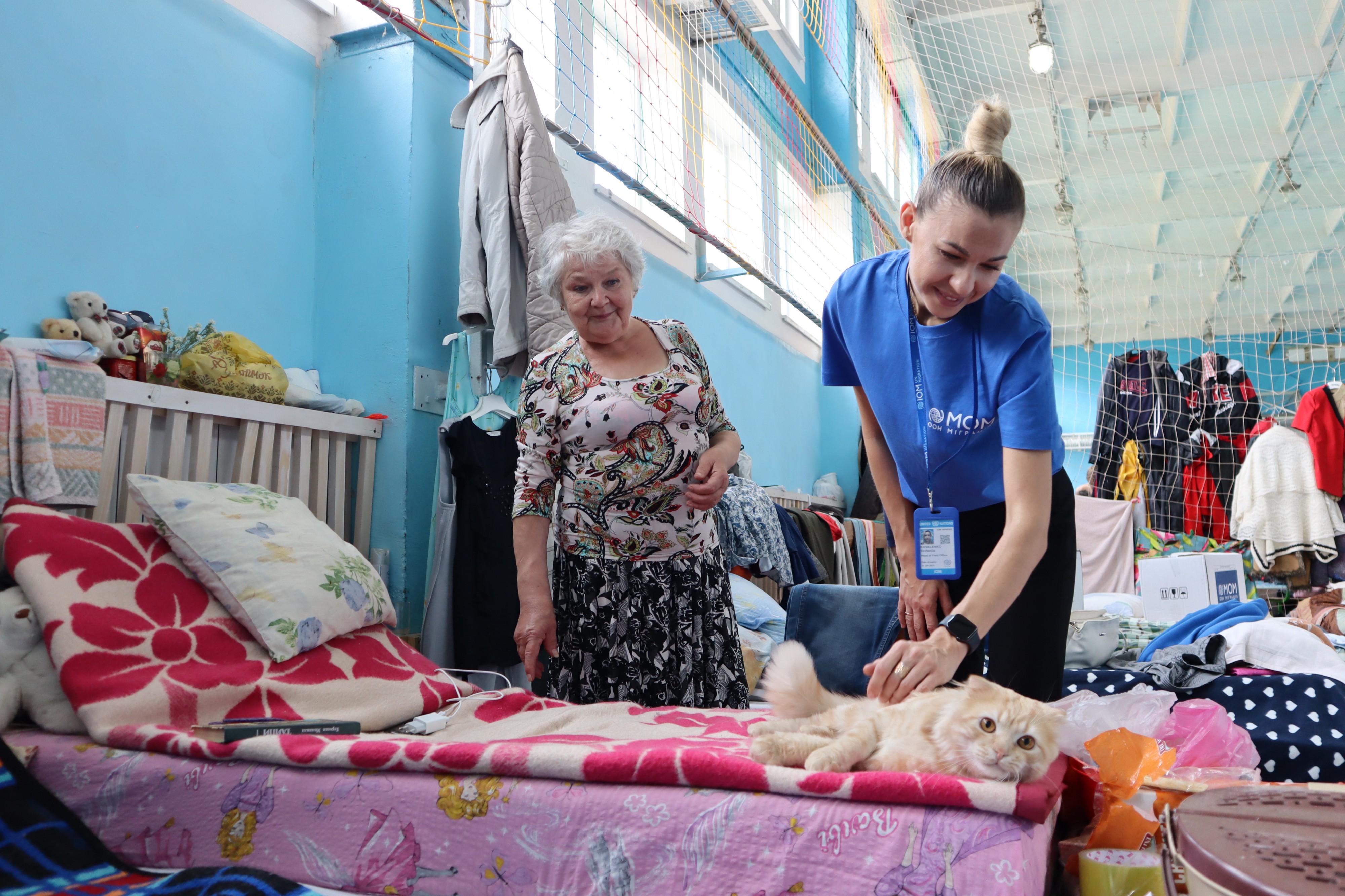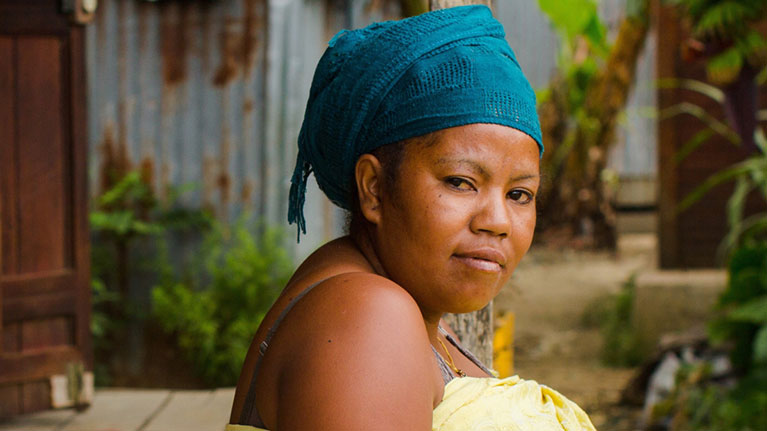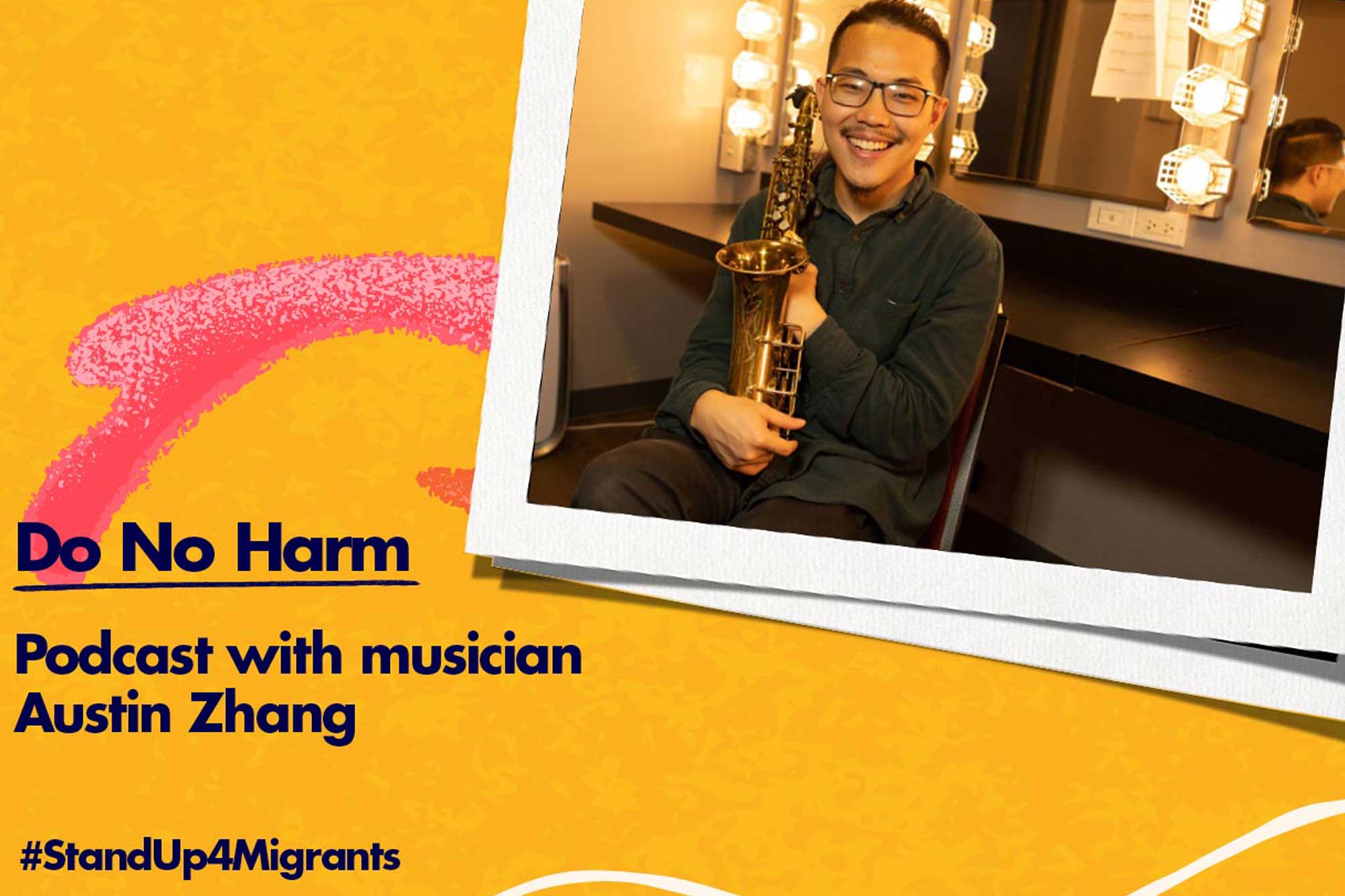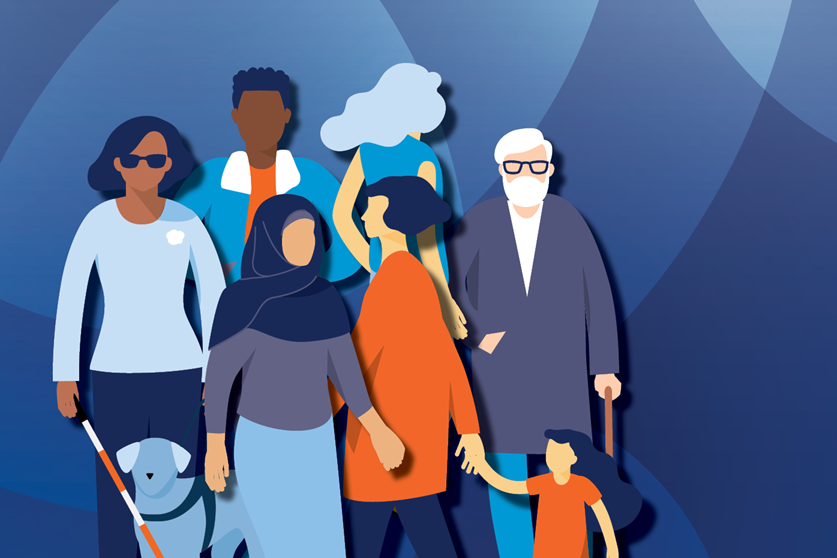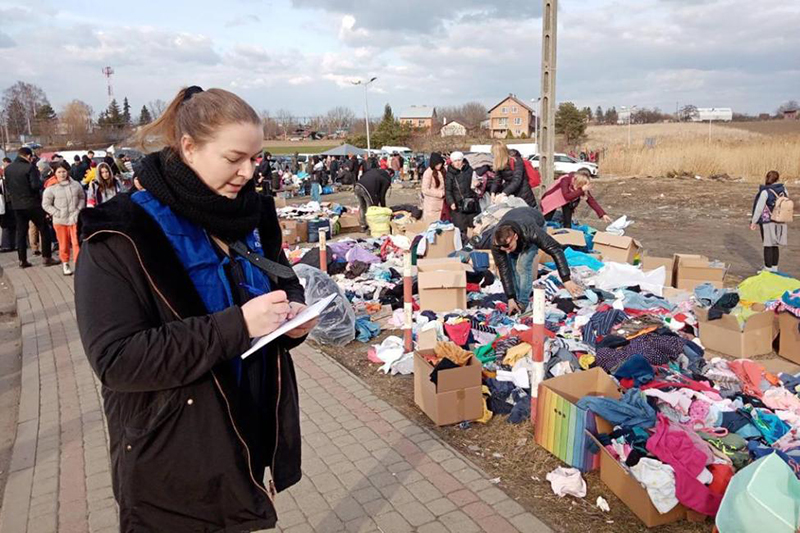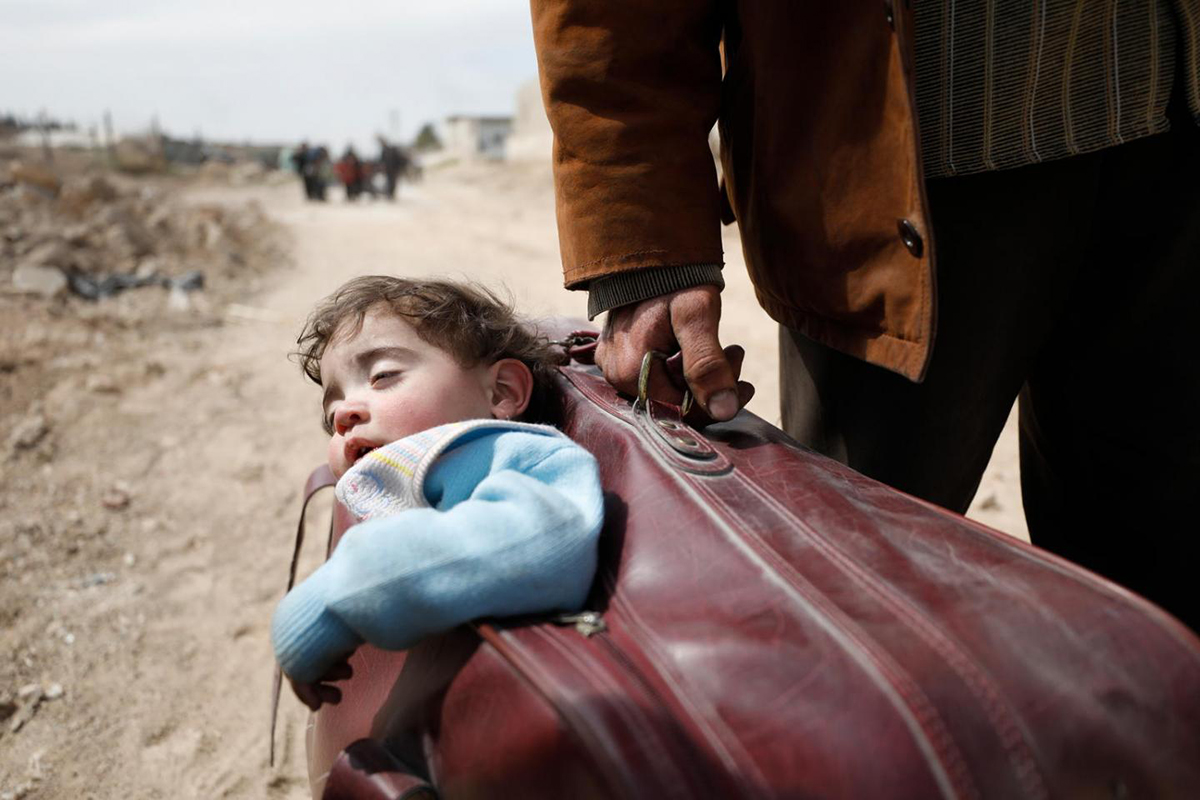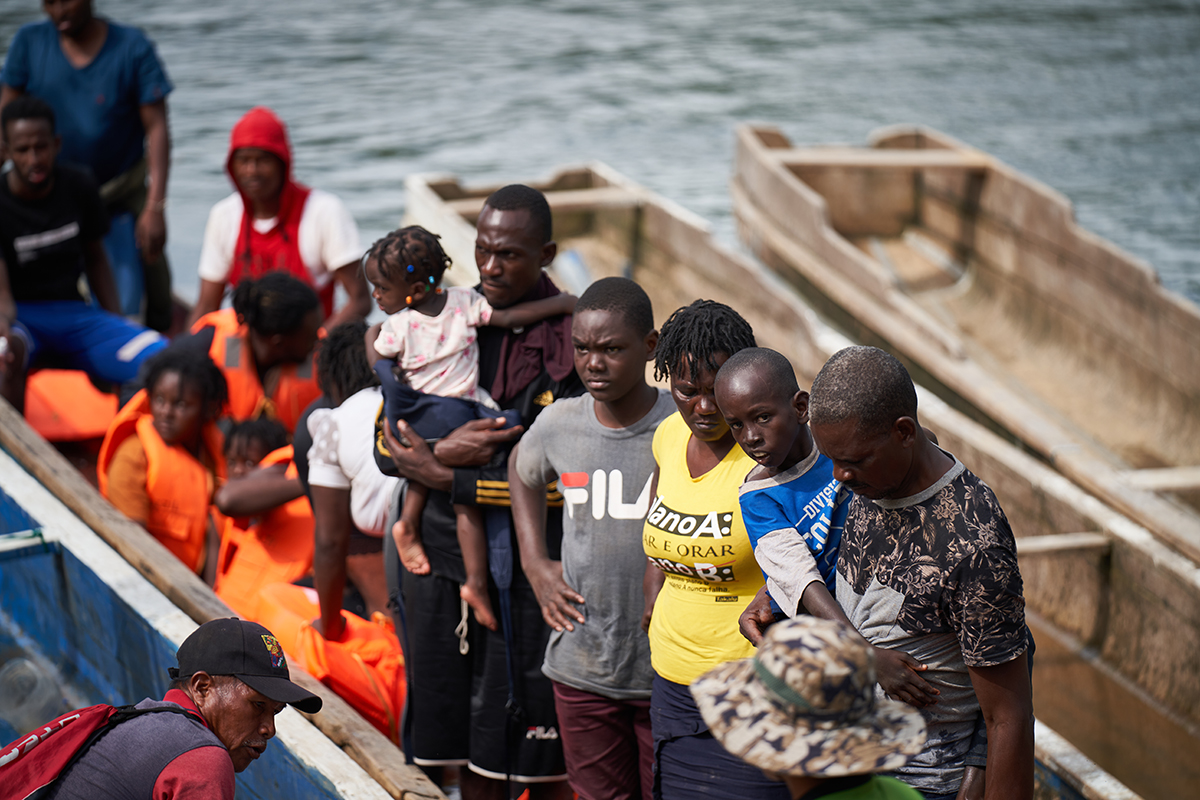Ruma, a 38-year-old widowed single mother of one from a small town in southern Bangladesh experienced social harassment after her husband died, forcing her to migrate. Through an arranged marriage of convenience, she made it to Italy. Despite her attempts to succeed in Italy she decided to return home to Bangladesh, where she learned about the IOM’s Prottasha project. The team has provided her with financial literacy and in-kind support. She has finally been able to provide for her son who is currently pursuing his future.
Migrants
Despite several attempts at searching for a better future for his family, Moharaj, he ran into one problem after another resulting in failure. After being smuggled into Syria he hoped to make it to Italy. One year later, he boarded an overloaded boat to seek refuge on an island in Greece. He eventually discovered that IOM provided support to migrants who voluntarily chose to return home. Due to an injury that left him permanently disabled, IOM extended much needed support through the Prottasha project, which has rekindled hope in his family.
Despite restrictions on women's freedom of movement and an environment of fear, female humanitarian workers continue to provide vital support to Afghan women. Every month, IOM provides assistance to 162,000 women in Afghanistan.
Being indebted is common for migrants and may lead to involuntary re-migration. An IOM study finds that regardless of country of origin or gender, the majority (72 per cent) of returnees surveyed reported having borrowed money, with 92 per cent of them still having to repay all or some of that debt. Returnees often reported stress, stigma, and shame because of indebtedness. A reduction in the costs of migration could lead to better, more sustainable reintegration outcomes.
Since the outbreak of the war in Ukraine, nearly 8 million people have fled to neighbouring countries. Poland has received close to 1.5 million people. When Tatiana first arrived in Poland she had significant culture shock; she felt stressed and overwhelmed by the many changes in her life. Tatiana soon realized that she needed to find a job to support her family, but she wanted to do something that she was good at and passionate about. A special IOM initiative in Poland would give Tatiana the chance to meet some amazing women to support her through the difficult period she was enduring.
Over the last decade, reports of labour exploitation of migrants and even forced labour have been widespread. After a complaint in2014, following a period of intense negotiations, the State of Qatar and the ILO launched a programme to support major labour reforms.
The boat departs on Sunday and Thursday evenings and arrives on the shores of Yemen by dawn. Smugglers count the migrants – a standard practice to ensure that only those who have paid get onboard. The country’s instability, coupled with a historically brutal drought and other effects of climate change, is deepening irregular migration through and from the Horn of Africa, forcing thousands of vulnerable people to attempt risky journeys. IOM works with partners and governments to assist and protect vulnerable migrants from Ethiopia, Somalia, and Djibouti moving to and from Yemen.
An estimated 6,645,000 people remained internally displaced in Ukraine as of 23 July, according to data from the International Organization for Migration (IOM). More than 100 internally displaced persons (IDPs), found shelter in this western Ukraine high school. In the early days of the Russian invasion, many communal facilities, such as schools, kindergartens, dormitories and religious buildings, were rapidly turned into centres for those fleeing the war. Not designed to serve as accommodations, they were meant to provide only temporary shelter to displaced Ukrainians. Six months later, however, people are still living there, often sharing one open space with little privacy. IOM is addressing the urgent needs of IDPs by providing the facility with basic household items.
ILO invites journalists to submit articles showing media coverage on labour migration and fair recruitment, to recognize their contribution to the elimination of xenophobia and discrimination.
Sometimes, we might unintentionally trigger a harmful narrative on migration. In this episode of the UN Human Rights podcast, #StandUp4HumanRights, we focus on how migration is not one-dimensional and why telling individual stories of migration, which reflect all dimensions of people, can help avoid perpetuating harmful narratives.
Meet Musician Austin Zhang who uses the power of music, harmonizing his saxophone jazz melodies with a recording of his mother’s own story of migration, to accentuate the emotions of her story.
“I had to share my mother's story and just to give people that perspective of that side of life and how real it is for many people to this day,” he said. “It was very important to me and also just the gratitude that I have for her and her journey.”
Millions of refugees and migrants face poorer health outcomes than their host communities, especially where living and working conditions are sub-standard, according to a WHO report.
Last year migrant workers sent $605 billion back home.
The International Organization for Migration (IOM) is mobilizing teams and boosting capacity in Ukraine and neighbouring countries to respond to the growing humanitarian needs of Ukrainians forced to flee the country. According to initial figures from IOM teams in neighboring countries, at least 600,000 people fled Ukraine in the first five days following the start of military operations and the escalation in hostilities. The Organization’s number one priority is the safety and protection of all those fleeing the country – including third country nationals – and their ability to access assistance.
Millions of children are on the move. Some are driven from their homes by conflict, poverty or climate change; others leave in the hope of finding a better life. Far too many encounter danger, detention, deprivation and discrimination on their journeys, at destination or upon return. UNICEF works around the world to help protect the rights of migrant and displaced children by providing life-saving humanitarian supplies in refugee camps. UNICEF also collects, analyses and disseminates data and gathers evidence about the situation and individual experiences of children on the move.
The total estimated 281 million people living in a country other than their countries of birth in 2020 was 128 million more than in 1990 and over three times the estimated number in 1970. In the run-up to the first International Migration Review Forum, the UN Network on Migration hosts a Migration Week on 14-18 February. Migration Week is the opportunity to showcase good practices in the implementation of the Global Compact for Safe, Orderly and Regular Migration, while encouraging strong engagement ahead of the Forum. Check out the programme to see the events organized worldwide.

